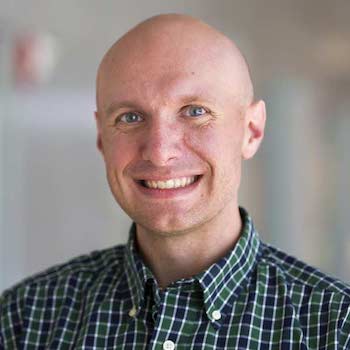Department of Nuclear Engineering

All Events
- This event has passed.
[Seminar] Next Generation Methods for Accelerating Monte Carlo Particle Transport Calculations
February 10, 2022 @ 4:00 pm - 5:00 pm
Event Navigation
 Dr. Brian Kiedrowski
Dr. Brian Kiedrowski
Associate Professor
Nuclear Engineering and Radiological Sciences
University of Michigan
Abstract
Simulating the transport of radiation through matter is a vital component of nuclear system design. The Monte Carlo method, not requiring approximations of discretization inherent in deterministic approaches, provides the highest-fidelity results, but has a computational cost that is often orders of magnitude higher, making it prohibitive for many applications. Two methods of accelerating Monte Carlo calculations will be presented. The first method improves upon and automates the selection of variance reduction parameters in shielding or radiation detection calculations by using deterministic discrete ordinates (SN) calculations to estimate Monte Carlo variance and computational time. Ongoing research for using machine learning methods for problem class identification and variance reduction technique selection will be discussed. The second method is a transient multi-level scheme using Monte Carlo simulations for detailed reactor transient calculations, which until recently has been impractical. Recent results with an implementation in the Shift Monte Carlo code demonstrate the feasibility of this approach on the C5G7-TD3 benchmark. Current research on employing parallel-in-time methods to further accelerate reactor transient simulations will also be presented.
Biography
Dr. Brian Kiedrowski is the Charles and Elizabeth Schrock Faculty Development Professor and Associate Professor of Nuclear Engineering and Radiological Sciences at the University of Michigan. He received his PhD in 2009 at the University of Wisconsin-Madison. After graduating, he became a scientist at Los Alamos National Laboratory in the Computational Physics Division researching and developing Monte Carlo methods on the MCNP Development Team. Currently, his research team focuses on the development of novel and improved methods for calculating how radiation interacts with matter.
Thursday, February 10. 2022
4:00 pm seminar
Hybrid Option (Speaker is in person)
zoom (link upon request)
or
Room 1202 Burlington Labs
